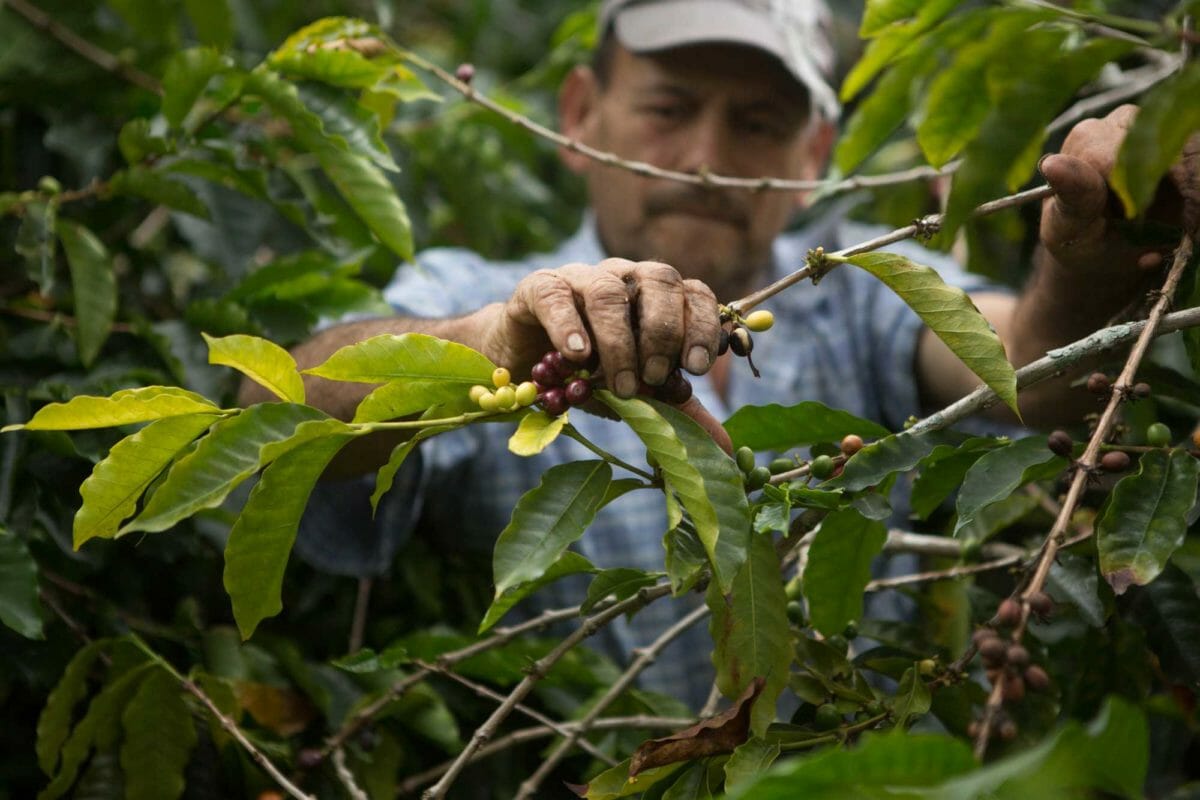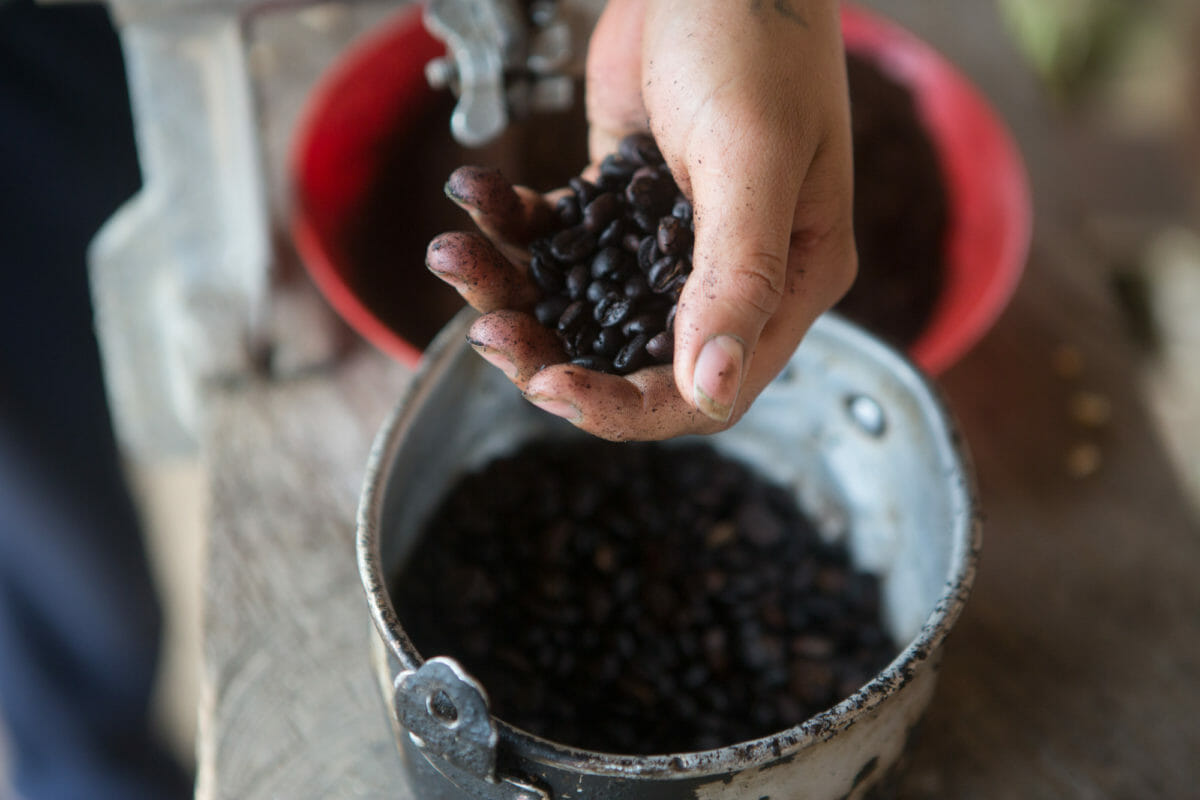Demand shortages have put pressure on farmers in coffee-producing countries.

Are you missing your daily trip to the coffee shop? So are roasters and coffee farmers.
The closure of cafés across America has led to growing uncertainty for growers and small roasters within the $18-billion-a-year industry.
Coffee culture is inextricably tied to the Latin American producers who grow much of the beans imported to America. These coffee farmers have been battling the environmental impacts of climate change and coffee rust for years, but now COVID-19 is disrupting supply chains and endangering the American coffee imports they rely on.
Large coffee houses—like Maxwell House and Folgers—have been stockpiling beans in fear of shortages and price increases. Commodity coffee companies can weather small rises in production costs or a short lack of demand. But for small specialty coffee importers and roasters, the lack of demand might not only sink their businesses but irreversibly impact the communities that grow high-end beans.
For now, the actual production hasn’t been impacted as much as the mechanisms of exportation. Commodity coffee is trading at a little over one dollar a pound, down from its 52-week high of around $1.30 in December.
Any extra production costs on commodity coffee will be felt by consumers as a small increase in price on store shelves, says Miguel Gomez, an associate professor of applied economics at Cornell University. It will be the smaller roasters, who directly source from predominantly family-run coffee farms, that will suffer, he says.
“I am uncertain on the ability of these specialty coffee roasters to be able to pay the prices that they have been for coffee because the demand is not there,” says Gomez.

Photo courtesy of Devoción.
The demand shortages caused by restaurant and café closures have put pressure downstream on the communities and cooperatives in Guatemala, Colombia, and other coffee-producing countries. This lack of demand has been compounded by extra production costs seen throughout global supply chains.
“There’s an imbalance of equipment in the global shipping system that started with the China trade war,” says Todd Caspersen, the vice president of coffee cooperative Equal Exchange. “There’s just less containers and they’re in the wrong places.”
Ocean freight prices have gone up because shipping containers have had trouble getting to ports where coffee is exported. Labor disruptions in India where many coffee bags are made, could affect pricing further down the chain as coffee farmers struggle to get all the export materials they need, says Caspersen.
That’s not even taking into account labor shortages in coffee-growing countries, the cost of increased sanitation in processing beans, and the impacts of more substantial outbreaks in coffee-producing regions.
All of these costs eventually will fall either on the consumer or the producer.
While COVID-19 will likely continue to destabilize the region, Colombia is trying to weather the storm as the country’s farmers head into their arabica bean harvest. Temporary labor is usually relied on to help manually harvest beans; yet, concern of the novel coronavirus spreading in rural areas has restricted the amount of labor available for harvest. In turn, Colombian coffee production was down 28 percent last month compared to April 2019.
The Colombian Coffee Growers Federation has been a strong “safety net” for producers in the past helping to maintain higher prices for farmers’ beans, says Gomez. The challenges COVID-19 is posing to harvesting, production, and exportation might be moderately offset by protections that the federation is putting in place to help farmers.
The country’s coffee producers have overcome many socio-political challenges over the years, and for them, the pandemic is just the latest threat to their livelihoods.
Correction: A previous version of this story said Todd Caspersen was the president of coffee cooperative Equal Exchange. Caspersen is in fact the vice president. We apologize for the error.
Has anyone tried chicory? I think it is the root that provides a strong drink??